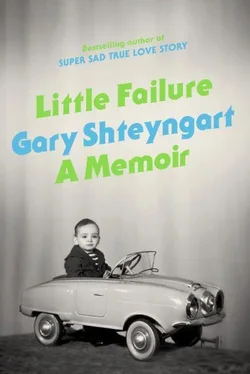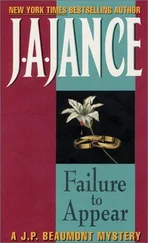“Yes, because it was the battle of Chesme,” my father says.
“I don’t remember any thing!” says my mother.
Its three spires are poking into the northern murk, there’s a sandy lot in front of it. A drunk is sitting on a bench with his arms around one leg. My mother sits down on another bench to treat her corn. “Just go in the church by yourselves,” she says. “If there’s a toilet, tell me.”
“Do you remember we used to launch your helicopter here?” my father says.
“The helicopter, yes.”
“Many, many times we launched the helicopter. You liked it so much. And I did, too. I actually liked it, too.”
“Where did we find the helicopter?”
“We bought it! Where did we find it? It flew so high, almost to the windows.”
“I remember it got stuck one time.”
“No, I don’t remember that. I don’t think so. Many, many times we would launch it. You were so happy.”
We come upon a heavy wooden door. My father takes off his cap. Inside the church, a floodlit study in pink and gold. People are crossing themselves with a quiet vengeance. “They sure knew how to build churches in Russia,” my father says, impressed. “The most well known of the post-Byzantine style is the Cathedral of St. Sophia in Novgorod. I was there.”
We leave the church. And I think: That was it? That was the entire visit? That was the sum of fifteen years’ worth of panic attacks?
My mother is still sitting next to a dirty flowerpot outside the church, carefully applying Dr. Scholl’s to her feet. “You’re a comical old lady,” my father says to her. She gets up and begins to waddle, penguin-like, away from the church and back toward Moscow Square and the metro that will take us back to our hotel. We pass by a graffito that addresses the three of us Jews specifically: “The Slavic Realm is for Slavs only!”
“His posture has improved so much,” my mother says of me. “He’s unrecognizable. His walk. It’s like he’s not my son!”
“He’s been going to the gym,” my father says. “Feel his arms. How I fought with him to get him to play sports, but he didn’t do dick.”
“You didn’t want to,” my mother says to me. “He tried playing ball with you. He built you a little ladder.” As I write this, I hold a photo of myself climbing my father’s makeshift wooden ladder in our Leningrad apartment, wearing a sailor’s outfit and a shit-eating grin. The photo is dated 11/1978, and my mother’s handwriting on the back announces: “The famous athlete training at home.”
“He was trying to stop you from being afraid of heights,” my mother says. “And it worked, you climbed it.”
“Yes, you climbed to the top,” my father says. “Gradually. At first you climbed two or three steps, and then you got to the top. It’s all about training yourself.”
“On the one hand, your father taught you well,” my mother says. “On the other hand, he always pushed you.”
“Pushed me?”
“He wanted you to overcome your fear of heights but then when you got to the top he tried to push you off. And I read in Freud that you should never do such a thing.” She read in Freud? “It just creates more fear. But your father didn’t understand that. He was young himself. Thirty-three years old, what did he understand? Come to think of it, he was maybe about thirty-six when he pushed you off the ladder. *
“He pushed you from the heights, like this!” my mother says, as she makes a pushing motion. She laughs. “He scared you, and you became even more fearful of heights.”
“Let’s go! Let’s go!” my father says. “I have something to show you!”
We’re walking by Lensovet (Leningrad Soviet) Street. There are cheap lace curtains in the windows of the apartment blocks. The hotel Mir, which I’ve once unfairly described as “the worst hotel in the world,” sits on one side of the street. We step over crooked tram lines and unkempt vegetation. A soot-covered truck passes by. My father begins to speak rapidly, as if he has been building up the courage to do so.
“As I was telling you, little son, one day when we were walking down this street after launching our helicopter by the church, we were going back to our house and you started to behave rascally [ ty nachal shalit’ ]. You were still trying to launch the helicopter on the street and there were so many people around. I told you once, twice, you didn’t listen, then I swung my fist and you got it in the nose. And the blood began to flow.”
My mother laughs. “Oy, how could you do that? I gave my son into your hands, and you would do that!”
“When I came back to Russia as an adult and walked by here I began to feel very scared,” I say. “And I had dreams about helicopters.”
“Really?” my father says. A sad-looking child peeks out from behind his lace curtains as we walk by a first-floor apartment. We pass a sign for a cell phone company: SIGN UP AND COMMUNICATE FOR FREE.
“And then I bought a book about Petersburg. I was looking at it in the store, and I saw the Chesme Church, and I had a panic attack.”
“Oh, Igor, you are so sensitive,” my mother says. “And that is why you are a writer.”
“In Russia you could do things like that,” I say, meaning punch a five-year-old child in the nose until he bled. “But in America …”
“You couldn’t do that in America?” my mother asks.
“I didn’t want to beat you,” my father says. He looks thoughtful. “It was by accident. I waved my hand and hit you in the nose.”
“I only really beat you up once,” my mother says, “and I was so sad afterward.
“I guess even from the start I was an American mama,” she says.

It is time for me to be silent. It is time for me to listen, not to talk. But it is also time for me to go underground.
It is 2010, a year before this current trip with my parents. I have returned to St. Petersburg to do a reading tour on behalf of the U.S. State Department. With some free time on my hands, I am taking the metro to the southern suburb to see my friend K. The Petersburg metro, built under Stalin, is the most reliable mode of transport in the city, but on that day, just as we are approaching Moscow Square, the train stalls.
I look up at a poster showing a pretty girl of about five holding a paintbrush with white paint smudged on her cheeks and forehead, smiling mischievously. The caption reads:
WHAT WOULD A RESPONSIBLE PARENT DO?
a) Put her in the corner
b) Enroll her in art school
c) Suggest that you paint together
— Russia Without Cruelty to Children!
The panic attack begins immediately. My breath is gone. I look up at the grimy ceiling of the metro car, trying to see right through it to my freedom, but all I can see through the deep tunnel and the Soviet wiring is Moscow Square and Lenin and the Chesme Church and something I cannot articulate.
An organization called Russia Without Cruelty to Children! is suggesting that the worst Russian parents are capable of is placing their playful, paint-splattered children in the corner. What I wouldn’t have given for that corner, that mythical, bloodless corner.
But right now, there is no place to sit on the crowded train. No corner for me to hide in. The train is not moving. Maybe it will never move! Maybe I will be stuck here with this paint-splattered, smiling girl forever. I turn to my fellow standing passengers, each of them rendered faceless by my panic attack, and begin to formulate what to say in Russian. “Gospozha ,” I would start, to the most matronly and kindest of the faceless bunch. “ Missis . I need to get off this train immediately. Please summon the conductor.”
Читать дальше













